August 28, 2025 | 17:44 GMT +7
August 28, 2025 | 17:44 GMT +7
Hotline: 0913.378.918
August 28, 2025 | 17:44 GMT +7
Hotline: 0913.378.918
African swine fever has been present in Vietnam since 2019 and has not been completely put under control due to the lack of specific treatment and vaccines. After only a few years, the disease has caused losses worth tens of thousands of billions of VND, leaving hundreds of thousands of farming households empty-handed as they were forced to discard their herds.
In that context, many individual pig farmers have boldly switched to the model linking boar-pig hybrid farming with businesses. This method not only helps prevent disease effectively, thanks to a synchronous technical process, but also ensures stable output.
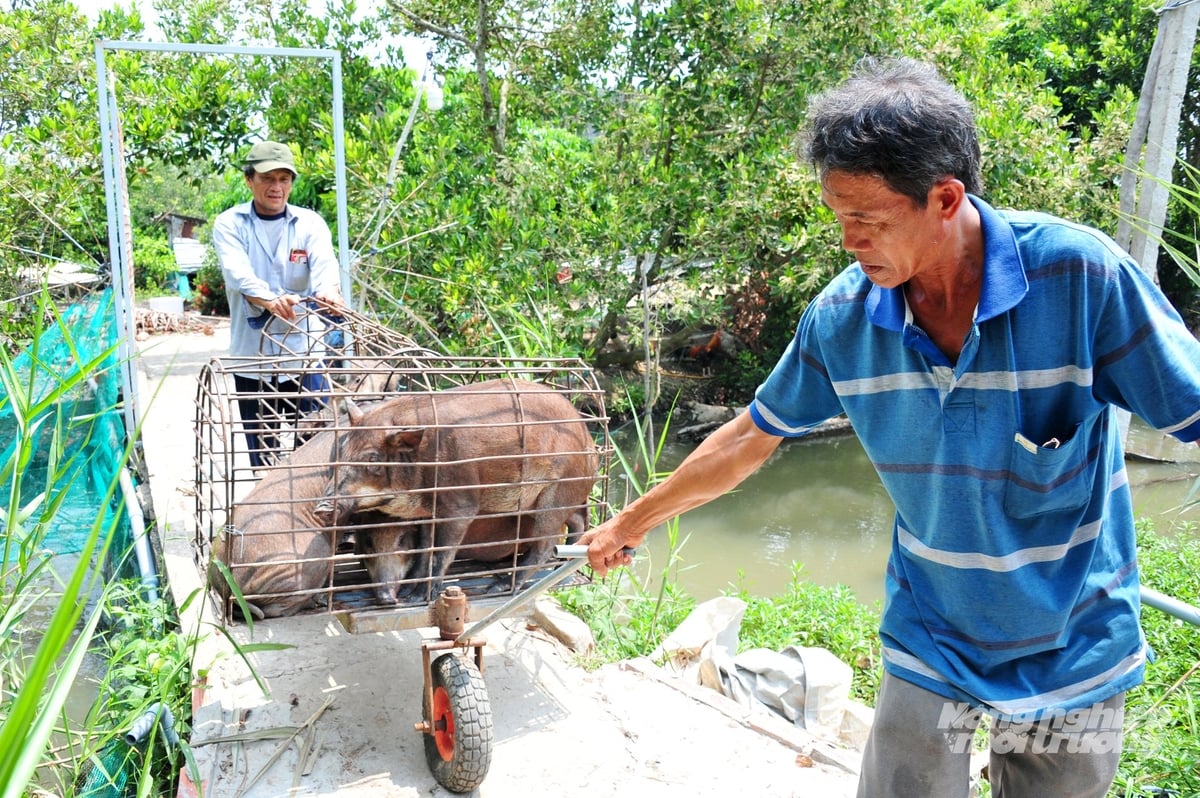
Farmers transport boar-pig hybrids to a centralized purchasing point of the enterprise, limiting the risk of disease spreading from independent traders. Photo: Le Hoang Vu.
One of the current typical models is the livestock cooperation system of Dong Thap Wild Boar Trading and Service Company Limited, which is currently linked with more than 7,000 households nationwide. The enterprise provides quality breeds, guides farmers on biosafety farming techniques, and underwrites all products.
According to Company Director Doan Phan Dinh, the principle of “nothing goes in, nothing gets out” is the vital factor in protecting the boar herd. All boars are secured through centralized purchasing and not sold freely. Strangers are not allowed into the barn. The entrance and exit gates all have disinfection pits and soft isolation fences, and technicians strictly control the operation process.
According to Doan Thi Le, a farmer in Dong Thap, her family used to raise white pigs for meat, but the economic efficiency was low, and the situation of "good harvests and low prices" kept happening. In 2019, she switched to raising boar-pig hybrids under a company's partnership.
From the initial ten piglets, her farm has now expanded to more than 300 square meters, raising eighty boar-pig hybrids, including thirty breeding sows. "Boar-pig hybrid is easy to care for, has few diseases, and the output is underwritten by the company at a stable price. Thanks to that, my family can confidently expand the scale without worrying about losing prices or having the results swept away by disease," she said.
In this model, the company also assigns technicians to each household, instructing them on cleaning the barns, mixing disinfectant solutions (Virocid, Biouv, etc.) twice a day, and performing mandatory vaccinations against other diseases such as classical swine fever, pasteurellosis, blue ear disease, and foot-and-mouth disease. Each household has a livestock diary to monitor the health of the herd, the amount of feed, and the farming environment.
According to veterinary experts, simply restricting strangers from entering the barn can reduce the risk of African swine fever emergence by up to 70%. This is the advantage that makes the boar-pig hybrid farming model superior to common small-scale livestock farming.
Dong Thap Wild Boar Trading and Service Company Limited has built five branches as of late. In the 2025 - 2026 period, the company plans to open eleven new branches in the Mekong Delta to form a widespread technical and purchasing network, thereby providing timely support when the epidemic breaks out.
Not stopping at product underwriting, the company also supports herd restoration after the epidemic by providing breeds at a price 50% lower than the market standard, providing local farmers with detailed instructions on renovating and cleaning barns before importing new herds, signing underwriting contracts to consume products at fixed prices, and reducing the risk of "price drops" for farmers.
From the viewpoint of Huynh Tat Dat, Deputy Director of Dong Thap Department of Agriculture and Environment, raising boar-pig hybrids in association with enterprises is a sustainable direction, both controlling epidemics and ensuring output for farmers. This is an important factor that helps farmers feel secure in restocking their herds and not leaving their barns empty when an epidemic occurs.
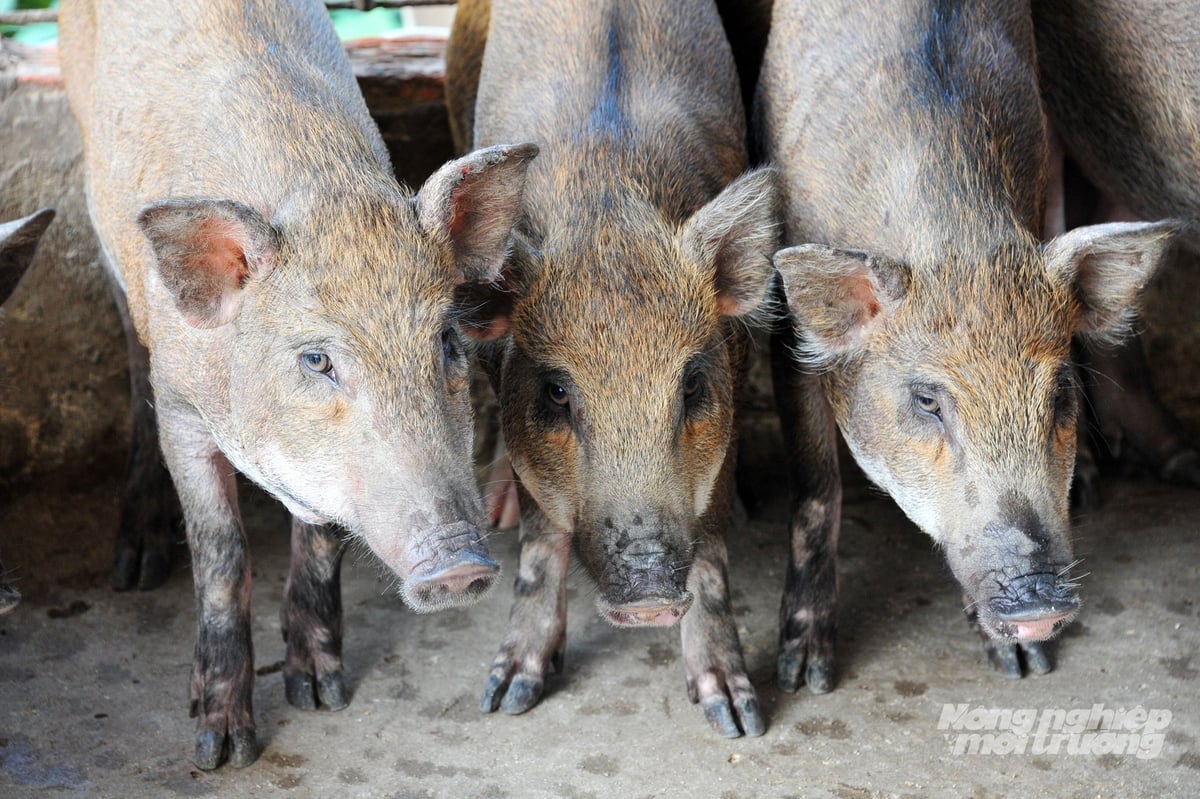
The herd of boar-pig hybrids is healthy and growing well thanks to the application of farm biosecurity processes and the cooperation with enterprises that guarantee output. Photo: Le Hoang Vu.
Reality has shown that small-scale farms that are built spontaneously often lack the capacity to prevent epidemics and find stable output. Therefore, the local agricultural sector is strongly encouraging livestock farmers to participate in link chains to both minimize disease risks and increase economic value.
Thanks to the support of businesses, this model has proven effective, bringing double benefits: disease safety and sustainable output. “People support – officials agree – businesses are determined”, this is the important link that creates the value chain of boar-pig hybrid farming that is spreading in the Mekong Delta and the Central region today.
Translated by Samuel Pham
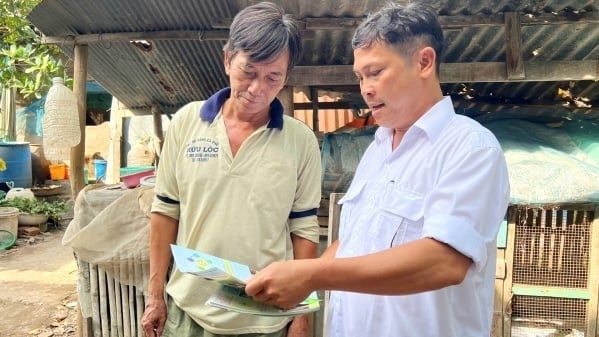
(VAN) Thanks to the application of many synchronous solutions, including barn sanitation, vaccination, and transportation control, An Giang's pig herd is growing steadily.
/2025/08/28/2508-0-101558_559.jpg)
(VAN) Under the Ho Chi Minh era, irrigation in Vietnam received special attention and investment, forming a network of 'lifelines' that nourish the fields and bring prosperity to the people.
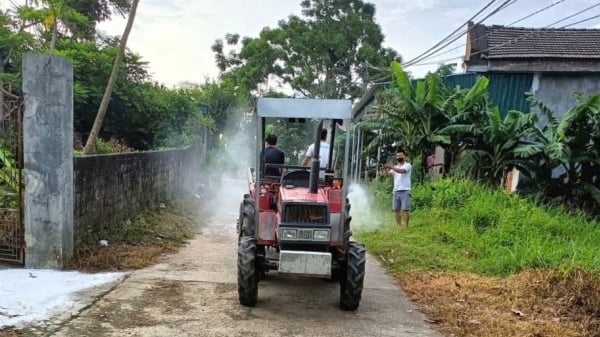
(VAN) African swine fever (ASF) outbreaks have caused heavy damage to the livestock industry in Tuyen Quang, but many facilities stand strong, making this province a safe spot against the epidemic.
/2025/08/27/4530-5-193458_872.jpg)
(VAN) Overcoming prejudices about a harsh land, lush organic coconut gardens in Tay Ninh serve as proof of innovation in local agricultural production.
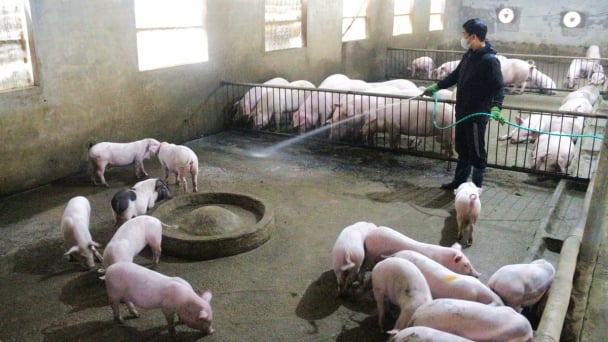
(VAN) Reality in Hung Yen shows that the risk of disease invasion is extremely high in places not strictly applying biosecurity in livestock farming.
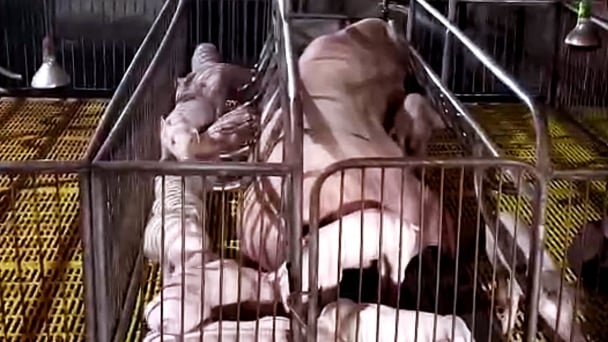
(VAN) Since the first day of African swine fever in 2019, Hung Yen livestock farmers have learned to adapt with the utmost caution and discipline.